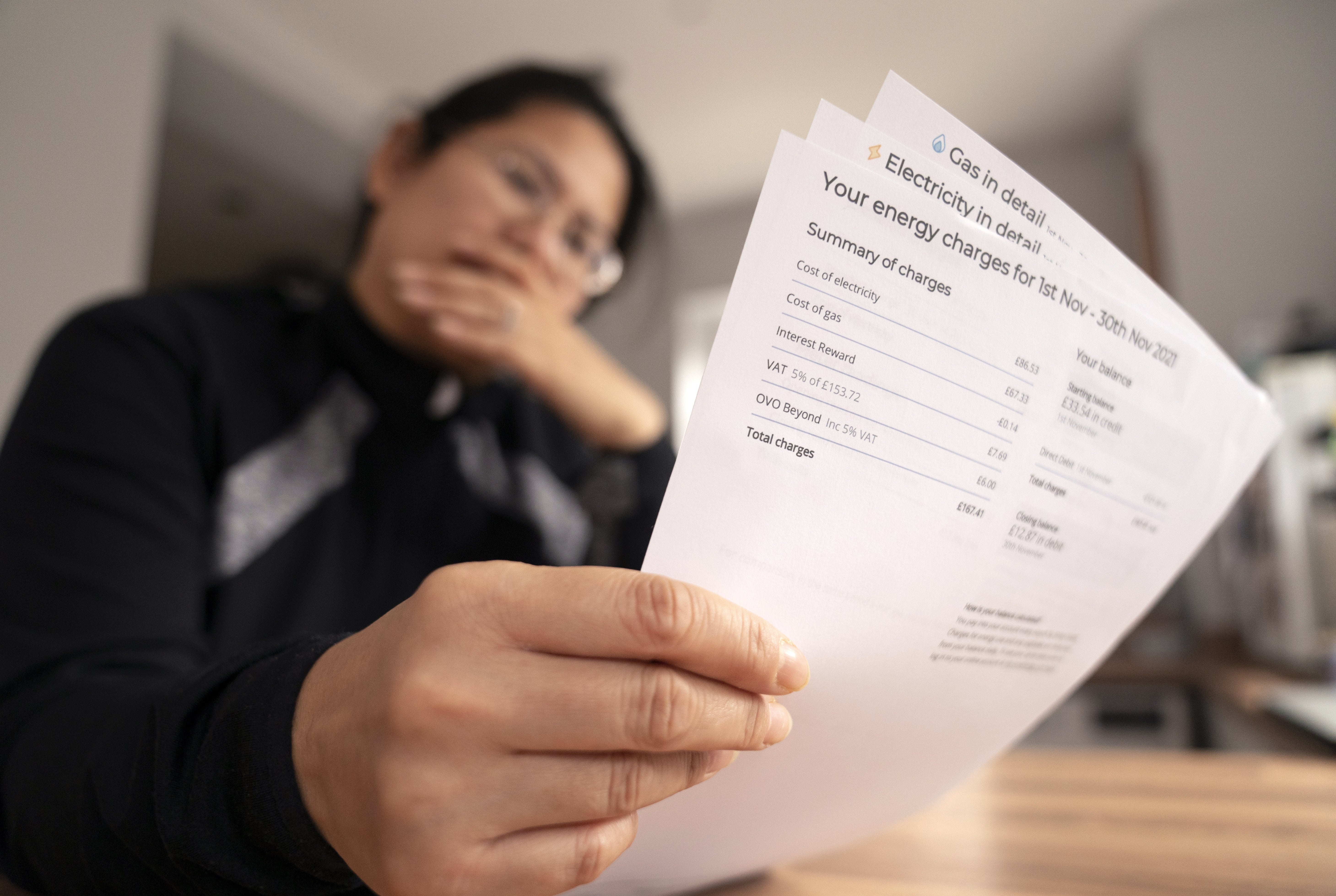NHS boss warns of ‘unprecedented’ risk of death from cold homes unless ministers intervene on bills
UK is facing a ‘humanitarian crisis’

NHS leaders have warned of an “unprecedented” risk of death from cold weather this winter unless ministers intervene on energy costs.
As households face the prospect of sky-high bills, Matthew Taylor, the chief executive of the NHS Confederation, said research has shown up to 10,000 people die from under-heated homes in an average year.
But the cost of living crisis will create an “unprecedented number of people who won’t be able to heat their homes” unless the government acts.
The NHS confederation, which represents health bosses, and more than 100 NHS leaders have written to minsters to sound the alarm.
Mr Taylor told BBC Radio 4’s Today programme: “Research suggests that a failure to heat our homes can contribute about 10,000 additional deaths a year. Now that is in a normal year. And we know that pressure are going to be much greater for people and unless we do something to help people with energy costs there will be an unprecedented number of people who won’t be able to heat their homes.
“So this is going to have a major effect in terms of people being sicker but also in terms of driving demand.”
The letter warns people will have to choose between eating and heating this winter.
Mr Taylor said: “The country is facing a humanitarian crisis.
“Many people could face the awful choice between skipping meals to heat their homes and having to live in in cold, damp and very unpleasant conditions.
“This in turn could lead to outbreaks of illness and sickness around the country and widen health inequalities, worsen children’s life chances, and leave an indelible scar on local communities.”
These outbreaks of illness will strike “just as the NHS is likely to experience the most difficult winter on record”, he added.
“NHS leaders have made this unprecedented intervention as they know that fuel poverty will inevitably lead to significant extra demand on what are already very fragile services,” he added.
“Health leaders are clear that, unless urgent action is taken by the Government, this will cause a public health emergency.”
Household bills are set to soar from October when Ofgem, the energy regulator, raises the cap on prices.
Labour have called on ministers to freeze bills while others have demanded more support for the vulnerable.
Ministers have said the Treasury is working on the issue, but no action can be taken until a new prime minister is unveiled on September 5.
Mr Taylor, a former Labour advisor, denied the letter was “overtly political”. He said: “It’s not our job to tell the Government what to do.
“It’s our responsibility to be clear about what is likely to be happening in terms of health needs and the capacity of the NHS to cope.”
“We’re making this call because leaders have asked us to make this because they can see the growing problems in their community and amongst lower paid staff, and they are concerned about the fact that they’ll be facing additional demands, more people who felt sick during winter, and it’s our responsibility to speak about that,” he said.
“It is a major public health issue.”
Jeremy Vanes, chairman of Black Country Healthcare NHS Foundation Trust, said the crisis would have "wide health effects” as she called on future help from the government to be “well targeted".
She said the population her organisation provides mental health services for is among the least wealthy in the UK, with more than 45 per cent of people in the lowest income bands.
"We anticipate some will even struggle to keep their homes in the year ahead, such is the affordability crisis,” she warned.
Beatrice Fraenkel, chairwoman of Mersey Care NHS Foundation Trust, said: "Whilst we as employers are doing all we can to mitigate against the situation, this crisis is proving a real challenge for our staff, personally and professionally."
A government spokesman said it had taken action to offer households £37 billion worth of support, including targeted help. “Eight million of the most vulnerable households will see £1,200 extra support, provided in instalments across the year, and everyone will receive £400 over the winter to help with energy bills,” he said.
“That’s on top of action earlier this year, including a record fuel duty cut and a National Insurance cut worth up to £330 a year for the typical employee.
“We are also working closely with the NHS at pace to ensure we are ready for the pressures ahead by increasing capacity, boosting NHS 111 and 999 support, tackling delayed discharge and using new innovations such as virtual wards.”
Shadow Health Secretary Wes Streeting said: “Families are really worried about how they are going to afford soaring energy bills this winter. Many will be plunged into poverty by this cost of living crisis.
“NHS leaders are absolutely right to raise concerns about the impact on health. The Vaccines Minister has admitted that elderly people unable to heat their homes this winter will be at greater risk of flu and other illnesses.”






Join our commenting forum
Join thought-provoking conversations, follow other Independent readers and see their replies
Comments